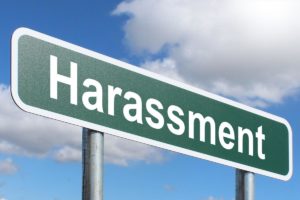There are actions that are needed to be followed when it comes to protecting your rights regarding discrimination, harassment and unfair treatment in the workplace. These actions go a long way in helping you to stop mistreatment within the workplace.
Follow Internal Processes
Internal processes of dispute resolution should be followed before you sue your employer. Talking to the offender should happen first.
A complaint can then be made to the company. A charge can thereafter be filed with a government agency that is charged with the responsibility of looking into such matters.
Right To Sue Letter
A right-to-sue letter can be obtained from this government agency. This opens the door for you to sue your employer. Quick action needs to be taken once you receive this letter since there are deadlines involved. At this stage, you may consider the help of a lawyer to file a case.
Suing your employer is a legal action that is geared toward stopping the harassment. Sometimes, harassment secedes and stops as soon as a lawsuit is filed. In other cases, you may be forced to pursue a lawsuit to its end.
You can sue your employer to prevent any future harassment. Suing your employer will help stop any further harassment in the future for both you and your colleagues. Perpetrators are able to learn from their mistakes thereby deterring them from such actions in the future.
Employers may at times retaliate when a harassment or discrimination suit is filed. You may end up being fired. It is within your rights to sue your employer and add a retaliation claim therein.
This is because it is not only unlawful but also unethical for your employer to retaliate through adverse employment action since you filed a lawsuit.
Suing Your Employer
Suing your employer can also ensure that you are compensated for the impacts of discrimination and harassment.
A lawsuit cannot undo any damages caused. However, it can offer you some compensation as a reprieve for what you endured. Financial compensation or reinstating back to your former job can happen.
Your employer should be able to come up with policies that shield employees against unfair treatment and harassment. Suing your employer becomes the only option left when other internal channels have been exhausted.
Due process should be followed when you sue your employer. You should ensure that there are watertight evidence and proof for you to sue your employer.
This will help in the administration of justice. Future discrimination and harassment will also be dealt with. You may also be compensated after the lawsuit.
Disclaimer: The contents of this article are for information purposes only and should not be relied upon as formal legal advice. We cannot accept responsibility for any loss as a result of acts or omissions taken in respect of this article. Specific legal advice should be sort tailored to the individual circumstances in all cases.

